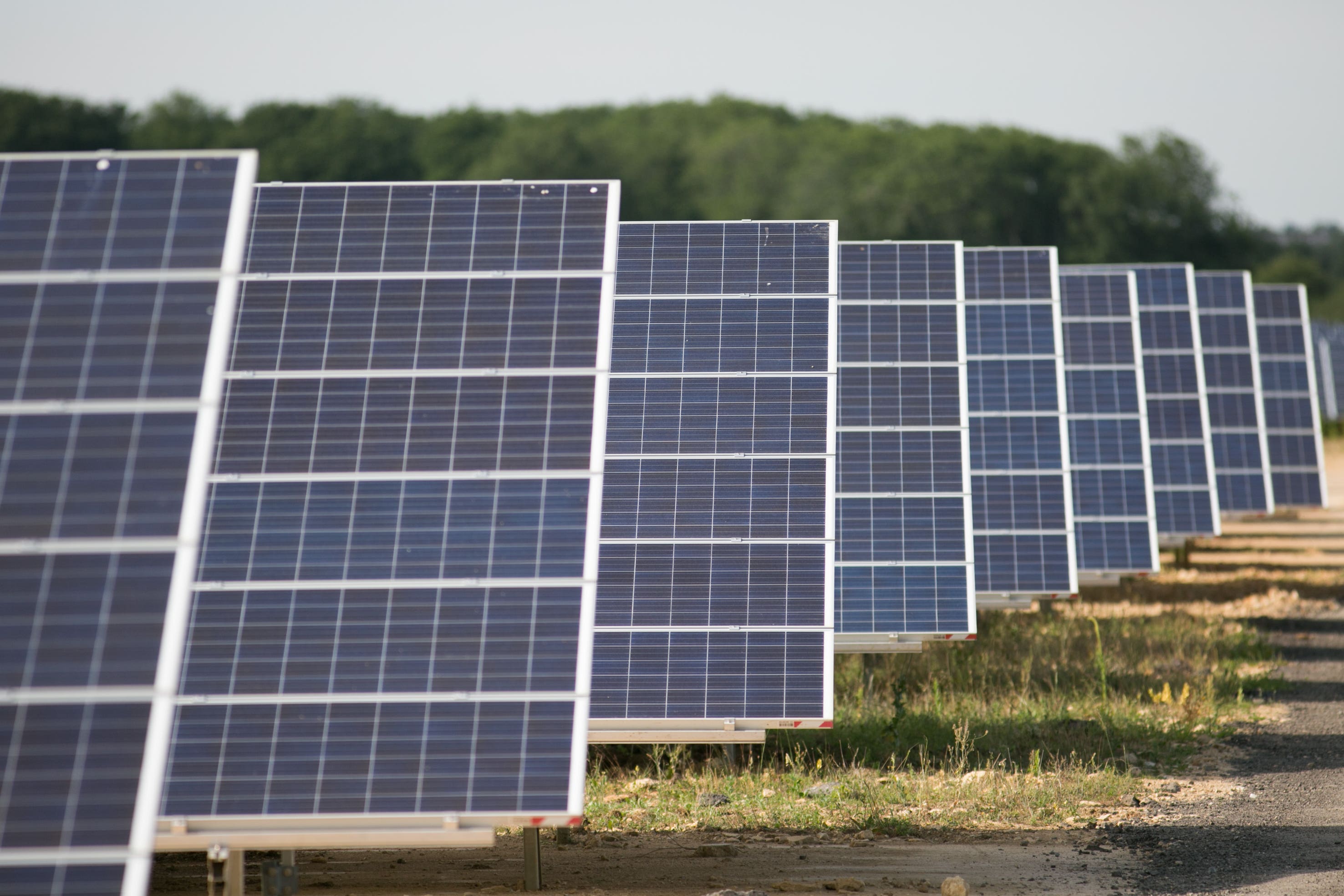Warning over failures to address Uyghur forced labour risks in renewable sector
Business leaders and ministers must develop more proactive strategies to address systemic forced labour risks in the sector, researchers found.

Your support helps us to tell the story
From reproductive rights to climate change to Big Tech, The Independent is on the ground when the story is developing. Whether it's investigating the financials of Elon Musk's pro-Trump PAC or producing our latest documentary, 'The A Word', which shines a light on the American women fighting for reproductive rights, we know how important it is to parse out the facts from the messaging.
At such a critical moment in US history, we need reporters on the ground. Your donation allows us to keep sending journalists to speak to both sides of the story.
The Independent is trusted by Americans across the entire political spectrum. And unlike many other quality news outlets, we choose not to lock Americans out of our reporting and analysis with paywalls. We believe quality journalism should be available to everyone, paid for by those who can afford it.
Your support makes all the difference.Investors and governments are not adequately addressing Uyghur forced labour risks in the renewable energy sector, research has found.
Anti-Slavery International, the Helena Kennedy Centre for International Justice and the Investor Alliance for Human Rights published an investor guidance and policy briefing on green technology supply chains on Monday.
The co-authors said business leaders and ministers must develop more effective and proactive strategies to address systemic forced labour risks in the sector due to supply chain reliance on the Xinjiang Uyghur Autonomous Region in China.
The country has been accused of committing crimes against humanity and possibly genocide against the Uyghur population and other mostly-Muslim ethnic groups in the north-western region.
Both solar and electric vehicle industries have been heavily impacted by forced labour in the region, given its dominance in green technology material supply and production, the report said.
The researchers, who carried out interviews with investment professionals to understand how investors have responded to the risks in their portfolios, warned that any materials sourced or produced in the Uyghur region carry human rights risks.
The paper also notes that green technology processing in the Uyghur region is also heavily reliant on coal-generated electricity, which is key to the “cost-competitiveness” of the Uyghur region’s solar industry, according to the International Energy Agency.
The researchers therefore argued that this also puts the solar industry at risk of greenwashing and potentially delays the transition to net zero.
The report further found that investor and corporate actions to remove the threat of direct or indirect complicity in Uyghur forced labour are stymied by a lack of co-ordinated international governmental collaboration.
It calls for such collaboration from governments to scale up and support the growth of alternative green technology supply chains.
The inability to conduct human rights due diligence on the ground, the impossibility of direct remediation and the absence of investor leverage will necessitate divestment from any supplier operating in the Uyghur Region
Elsewhere, the paper outlines guidance for investors to mitigate these risks as well as a policy brief to the UK Government to address the concerns through legislative and regulatory action.
This includes tools for investors to identify, exclude or engage businesses linked to these risks from their green energy portfolios.
The report also explores how investors can re-channel investments into companies that champion sustainability, innovation and supply chain resilience as well as outlines policy measures governments can take to facilitate those investments.
Anita Dorett, director at the Investor Alliance for Human Rights, said: “Investors in green energy sourcing from the Uyghur Region face heightened risks and reduced options.
“The inability to conduct human rights due diligence on the ground, the impossibility of direct remediation and the absence of investor leverage will necessitate divestment from any supplier operating in the Uyghur Region.”
The global efforts to address climate change and move to clean energy should not come at the expense of increasing the risks of people being exploited
Caroline Dale, representative for Helena Kennedy Centre for International Justice at Sheffield Hallam University (SHU), said: “This guidance provides stakeholders with practical tools to uncover hidden risks within their portfolios and redirect investment into corporations which champion the protection of human rights and sustainability.”
Jakub Sobik, communications director at the Modern Slavery and Human Rights Policy and Evidence Centre, which funded the research, said: “The global efforts to address climate change and move to clean energy should not come at the expense of increasing the risks of people being exploited.
“We hope this new evidence can inform the UK Government’s and investors’ efforts to minimise these risks in practice.”
PA has contacted the Department for Net Zero and Energy Security for comment.